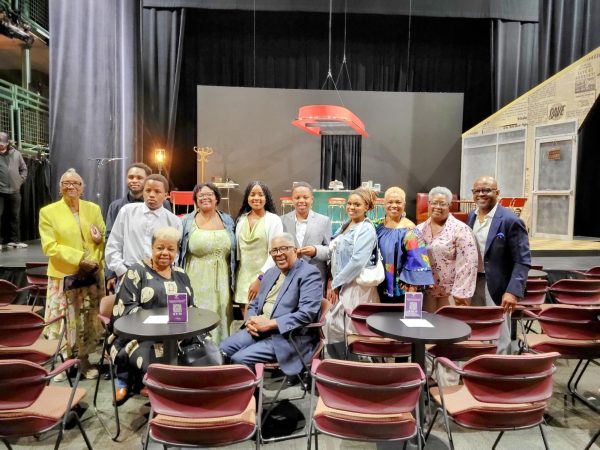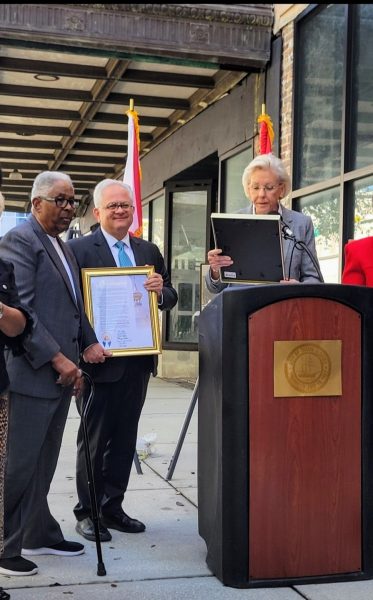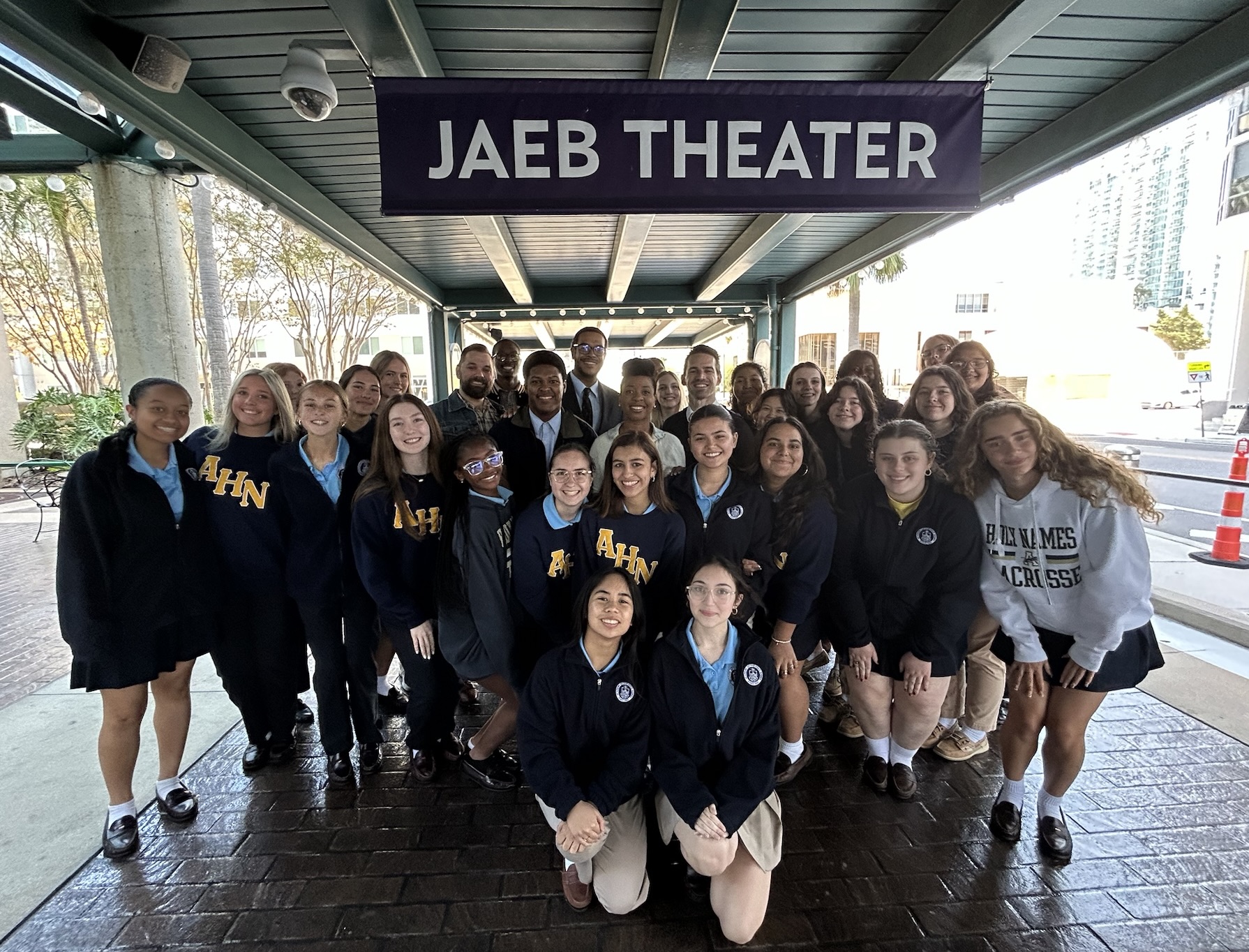When the Righteous Triumph a play written by Mark E. Leib, ran from March 6 to March 16 at the Straz Center. Not only does this play demonstrate important aspects of Tampa’s history, but it also presented many students the opportunity to engage with the actors and reflect on serious issues depicted in the local showing.
The live play is closely based on real events that occurred in Tampa during the Civil Rights Movement. It follows a few key characters-including Clarence Fort, Reverend Lowry and Mayor Lane-in 1960 as they execute arguably one of the most influential Civil Rights demonstrations in the South.

Clarence Fort was the head of the NAACP Youth Council who worked with Lowry to schedule sit-ins at Woolworth’s (a prominent chain in the 60s) segregated lunch counters. Fort brought a surplus of students from Blake and Middleton high schools, bringing a youthful and determined voice to the demonstrations. While Fort handled these numerous peaceful protests, Lowry worked diligently behind the scenes with Tampa officials and administrators to work towards ending segregation in public places- this was not an easy feat.
Although the police force and Mayor Lane promoted the protection of the protestors if they remained peaceful, the play unveils the strong presence of racism that was here in Tampa. The play didn’t shy away from exposing the Klan that was very much alive in Tampa, along with its perpetrated violence, discrimination, and harm to the local African American community.
The play ended with an inspirational and reflective closing, showing the success of the movement Fort and Lowry executed. Segregation was clearly eradicated in many restaurants, a big step needed to promote the more inclusive environment Tampa presents today.
When the Righteous Triumph gave many students from local schools the opportunity to view the showing, such as Jesuit High School, Christ the King, and Academy of the Lakes. These opportunities allowed students to witness local history and be moved by its inspirational messages of achieving racial equality. However, it is within the Academy community that links the strongest connection.
Beloved High School Office Administrator Angelita Dupree is proud to share that her father is the influential Clarence Fort, whom the story centered around. Fort has been an integral part of our city’s history of working towards justice, and he has had many honors. Not only was Fort the leading force that led to integrated lunch counters, but he initiated the integration of the Tampa Transit Lines. He would move on to become Tampa’s first African-American long-distance bus driver and would later work as a Hillsborough County sheriff’s deputy.
Dupree adds, “It is due to my father’s courageous acts of fighting for justice and equality that I stand tall. I was taught at an early age the significance and beauty of African history and its importance to the world. My father constantly called me his Little African Princess and it helped with character building, confidence, and courage. Both he and my mother prepared me for racial encounters that occurred in school and generally. They told me I would be called names, left out of groups or worse. I recall one school incidence where I was asked to play the role of a maid. However, I told my classmates, there was a role open for a lawyer and that would be the part I take. I am for certain, my mom and dad’s constant presence, love and sacrifices made gave me a voice to speak up and always stand for justice.”
Fort has been honored with plaques, parks, and local trails, showcasing his infinite importance in the local community. This close connection brings even more importance to Academy students, showing the difference one can make in their community-in which each Academy girl could make as well.
Despite the strong influence on Academy students, When the Righteous Triumph presents importance to all viewers and Tampa citizens. The play demonstrates our local history-something that shall always be done to honor those who impacted many lives, learn from past mistakes, and depict important real-life events. It also teaches viewers-or reminds them-of the sometimes overlooked effects on racism and the violence it often caused towards so many of Tampa’s very own.
Ansley Roberts (’25) includes, “It was an eye-opening experience, as I never realized racism could’ve been that bad where I live. The fact that people actually went through that also made me feel for them.”
The Civil Rights Movement is often remembered in areas such as Montgomery, Atlanta, and Greensborough, but the movement was present and dominant in so many areas in the United States. Although Tampa isn’t often regarded as an influential city for the movement, it is imperative as locals that we remember our own evolution and history.

With When the Righteous Triumph, we honor the men and women who worked tirelessly, who risked their lives, and tested rigid boundaries to get the equality that is presented today. Tampa is a city with so much culture – with lively African American communities; prominent Hispanic influences; and even strong Greek centers in Tarpon Springs – that needs to honor the steps taken to achieve the interconnectedness and entanglement of all the ethnicities and races that make Tampa the great city it is today.















